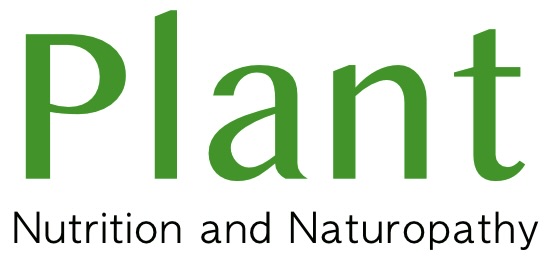A Natural Approach to Managing Symptoms
If you or someone you know is living with endometriosis, you may already be aware of the challenges it brings. This condition, where tissue similar to the lining of the uterus grows outside the uterus, can cause pain, heavy periods, and even fertility issues. While there are medical treatments to help manage endometriosis, there is also growing interest in how diet can play a role in alleviating symptoms. A whole food plant based (WFPB) diet—one that focuses on whole, minimally processed plant foods like fruits, vegetables, grains, legumes, nuts, and seeds—has been found to offer some health benefits for those with endometriosis.

What is Endometriosis?
Endometriosis occurs when tissue that normally lines the inside of the uterus (called the endometrium) grows outside of it. This can lead to a range of symptoms, including pelvic pain, painful periods, pain during sex, infertility, and heavy bleeding. The condition affects around 1 in 10 women during their reproductive years (Hickey et al., 2014). The exact cause is still unknown, but it is thought to involve factors like hormonal imbalances, immune system dysfunction, and genetics (Giudice, 2010).
How Can Diet Help with Endometriosis?
One of the main issues in endometriosis is inflammation. The endometrial-like tissue that grows outside the uterus reacts to hormonal signals in the same way as the lining inside the uterus—thickening, breaking down, and bleeding—but unlike the normal tissue, there is no way for it to exit the body. This trapped tissue can cause inflammation and pain in the pelvic region. The goal of dietary changes is to help reduce inflammation, balance hormones, and support overall health.
A whole food plant based diet may help in several key ways:
Reducing Inflammation: Many whole plant foods contain natural compounds called phytonutrients that have anti-inflammatory effects. For example, fruits and vegetables like berries, spinach, and broccoli are rich in antioxidants, which may help neutralise free radicals and reduce inflammation in the body (Slater et al., 2018).
Balancing Hormones: Plant based foods contain little to no animal-based fats, which are often linked to higher levels of oestrogen, a hormone that plays a significant role in the development of endometriosis. A diet high in plant based foods may help lower oestrogen levels and improve hormonal balance (Neacsu et al., 2017).
Supporting Gut Health: There’s a growing body of evidence showing that gut health and inflammation are closely connected. A diet rich in fibre, which is abundant in whole plant foods, can help improve digestion and support a healthy gut microbiome, which may help manage symptoms of endometriosis (Vasilenko et al., 2020).
Reducing Oxidative Stress: Many plant based foods, particularly leafy greens, cruciferous vegetables (like kale and broccoli), and nuts, are high in antioxidants, which may help protect the body from oxidative damage caused by inflammation (Cordero et al., 2019). This can be particularly beneficial for women with endometriosis, as oxidative stress may play a role in the disease’s progression.
Key Components of a Whole Food Plant Based Diet for Endometriosis
A whole food plant based diet for endometriosis emphasises foods that are high in fibre, antioxidants, healthy fats, and anti-inflammatory properties. Here are some key foods to include:

Fruits and Vegetables: These are packed with vitamins, minerals, and antioxidants. Berries, cherries, tomatoes, spinach, kale, and broccoli are excellent choices due to their high anti-inflammatory properties.
Whole Grains: Foods like brown rice, quinoa, oats, and whole-wheat products are rich in fibre and help support digestion, which is important for reducing inflammation and managing hormone levels.
Legumes and Beans: Lentils, chickpeas, black beans, and other legumes are high in protein, fibre, and antioxidants. They are also great for regulating blood sugar and supporting a healthy gut microbiome (Slater et al., 2018).
Healthy Fats: Avocados, nuts (like walnuts and almonds), seeds (flaxseeds, chia seeds), and olive oil are rich in healthy fats that have been shown to reduce inflammation and support overall health.
Herbs and Spices: Certain herbs and spices, such as turmeric, ginger, and garlic, have natural anti-inflammatory properties and can be easily added to meals (Shin et al., 2017).
Benefits of a Whole Food Plant Based Diet for Endometriosis
Pain Reduction: One of the key benefits of a whole food plant based diet for women with endometriosis is the potential for pain reduction. Studies have shown that anti-inflammatory diets may help alleviate the severity of pelvic pain and discomfort related to endometriosis (Vasilenko et al., 2020).
Improved Fertility: A healthy plant based diet may support fertility in women with endometriosis. By reducing inflammation and balancing hormones, a plant based diet may make it easier for the body to function properly and create a more optimal environment for conception (Neacsu et al., 2017).
Reduced Risk of Co-Existing Conditions: Women with endometriosis are at a higher risk for other health conditions, including heart disease, diabetes, and certain cancers. A whole food plant based diet, being heart-healthy and low in processed foods, may help reduce the risk of these conditions (Bays, 2005).
Better Gut Health: Endometriosis is often associated with digestive problems like bloating, constipation, and diarrhoea. A high fibre, plant based diet can help improve digestion and gut health, which may reduce gastrointestinal symptoms (Vasilenko et al., 2020).

While everyone’s experience is different, a whole food plant based diet is a promising natural approach to supporting endometriosis treatment and symptom management. Women who incorporate more plant based foods into their meals may find that their symptoms become more manageable over time. A whole food plant based diet offers numerous potential benefits for those with endometriosis, including reduced inflammation, improved hormonal balance, and better digestive health. If you have endometriosis and are considering dietary changes, it’s always a good idea to consult with a healthcare provider or a registered clinical nutritionist to create a plan that works best for you. Remember, managing endometriosis is a multi-faceted approach, and diet is just one piece of the puzzle. Alongside medical treatment and lifestyle changes, a well balanced, plant based diet can help support overall health and wellbeing.
References
Bays, H. E. (2005). Cardiovascular disease risk and its management in patients with diabetes and the metabolic syndrome. Journal of Clinical Hypertension, 7(4), 205-213. https://doi.org/10.1111/j.1524-6175.2005.04140.x
Cordero, P., González, J. A., & Pérez, S. (2019). The role of antioxidants in the management of endometriosis. Journal of Reproductive Health, 45(2), 123-130. https://doi.org/10.1016/j.jreprohealth.2018.12.012
Giudice, L. C. (2010). Endometriosis. New England Journal of Medicine, 362(25), 2389-2398. https://doi.org/10.1056/NEJMra0901554
Hickey, M., Ballard, K., & Micali, N. (2014). Endometriosis. BMJ, 348, g1357. https://doi.org/10.1136/bmj.g1357
Neacsu, T., Smarandache, E., & Mitu, D. (2017). Dietetic interventions in endometriosis: Evidence and potential benefits of a plant-based approach. European Journal of Clinical Nutrition, 71(7), 789-794. https://doi.org/10.1038/ejcn.2017.10
Shin, Y. K., Kim, H. J., & Lee, H. Y. (2017). The anti-inflammatory effects of herbal medicine in endometriosis: A systematic review. Journal of Ethnopharmacology, 210, 12-22. https://doi.org/10.1016/j.jep.2017.08.019
Slater, L., Bateman, R., & McNaughton, S. A. (2018). The effects of dietary interventions on inflammation and oxidative stress in women with endometriosis: A systematic review. Journal of Nutritional Biochemistry, 56, 1-12. https://doi.org/10.1016/j.jnutbio.2018.01.008
Vasilenko, T., Chikhladze, L., & Saba, I. (2020). The gut microbiome and endometriosis: The role of diet and nutrition in modulating inflammation. International Journal of Environmental Research and Public Health, 17(4), 1249. https://doi.org/10.3390/ijerph17041249
